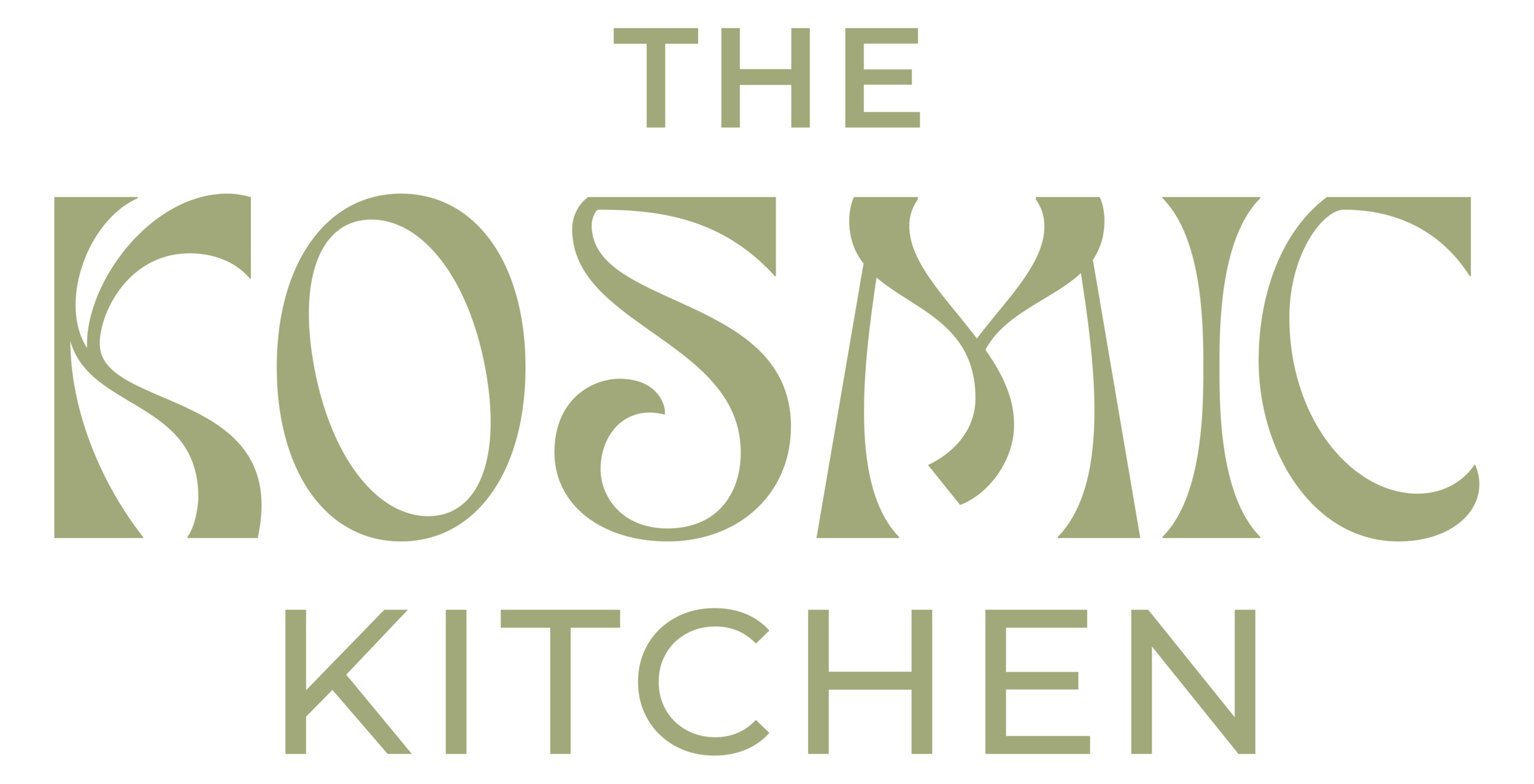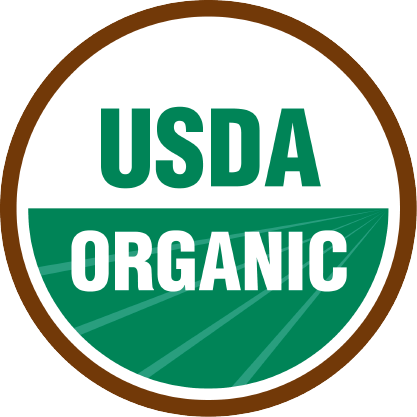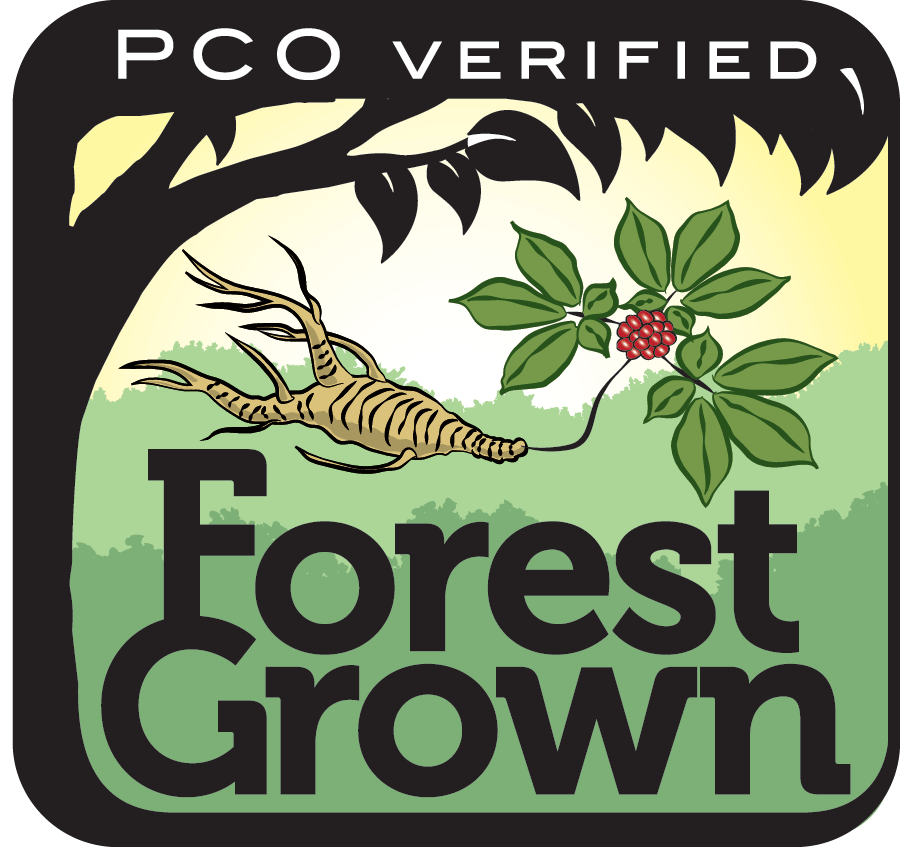Kosmic Guide to Buying Herbs
Something we always get asked is "where do I buy herbs?" While there are a few staple companies like Mountain Rose Herbs for bulk and Traditional Medicinals for tea, there are also a lot of differnt standards. Between Fairwild, Fairtrade, and Pharmacopeial, you might be wondering "what does it all mean?!"
Our Kosmic Guide to Buying Herbs goes over where to get quality herbs and products, and what all the different standards mean. If you have any resources that you would like to add, please feel free to comment below. We love finding new farms and distributors!
WHO TO BUY FROM
FRESH HERBS | GROWN YOUR OWN
First off, nothing compares to growing your own herbs. We suggest seeds from Strictly Medicinals, or getting them sourced locally from a seed exchange. We're lucky enough to live near Sonoma County Herb Exchange, so we get a ton of our medicine fresh from local farmers. But, we know that's not usually an option. We feel super lucky to live in the Bay Area!
BULK DRIED + POWDERED HERBS
If you are looking for dried herbs, so you can make your own teas and use adaptogens on the regular (which you totally should), we highly suggest sourcing from Mountain Rose Herbs. They buy organic herbs, hire herbalists, support herbal education, and have a strong commitment to sustainability.
HERBAL TEAS
I am a die hard Traditional Medicinals fan. Full disclosure, I worked there for years, but I feel like it makes me even more of a reliable source because I still adore them and their products! They've got a full team of plant lovers and herbalists across all departments, from sourcing and formulating, to marketing. I love that a full box of tea is under five bucks, organic whenever possible, and available almost anywhere. I suggest the Chamomile with Lavender, Stress Ease Cinnamon (featuring skullcap), and anything in the Seasonal Line to support your immune system. Plus, their foundation's mission is to support supplier communities where their herbs are sourced from. They have built schools in India, improved water security, local health programs, and more.
HERBAL TINCTURES
Herb Pharm, all the way. Sarah did an internship at their farm years ago, and still sings their praises. They are one of the few U.S. herbal companies that actually has their own farm, and an educational program for budding herbalists at their Oregon farm. Tinctures are great for when you're on the go, and they work almost instantaneously.
HERBAL PILLS
Gaia does such a wonderful job at making formulas that are easy to use and effective. They also have a farm, and hire herbalists (which is key in my book). I recommend trying their single herb pills if you're someone who is less inclined to make tea or take a tincture, or formulas like Adrenal Health Daily Support and Sound Sleep.
ESSENTIAL OILS
Buying cheap essential oils is tempting, but this matters almost more than where you buy your dried herbs. For instance, it takes about 60 roses to make just one drop of rose otto essential oil. Think about how many resources were used to create that medicine, and how important it is that these plants were cultivated mindfully. Essential oils are a hyper potent form of plant medicine, that should be used and made wisely. I suggest buying from Simplers Botanicals (another place I used to work), or Verditas.
HERBAL POWDERS
For herbal powders, I suggest buying again from Mountain Rose Herbs. If you aren't able to prepare the herbs (most medicine is activated by heat) and you want them for something like a smoothie, make sure you're getting something that is already extracted and bio-available. Many of Sun Potion's products fit the bill here, and are carefully wild collected or organic.
MUSHROOMS
I swear by anything made by Paul Staments, at Host Defense. His line of capsules and tinctures are made from mushrooms cultivars that are grown in house, and they utilize mycelium to create the mushroom medicines which are incredibly potent and bio-available. I highly suggest his Reishi Capsules around the change of seasons, when allergies are full blown. You can buy mushroom powders at Mountain Rose Herbs.
STANDARDS TO LOOK FOR
ORGANIC
We all know this one by now, organic certified plants are grown with no synthetic pesticides or fertilizers, no GMOs, and with soil health in mind.
FAIRWILD
A new idea, but very important in the herbal world specifically. This certification makes sure that herbs and other plants are wild collected in a sustainable way, that supports the local bio-region and collectors. Many herbs, like wild American Ginseng, are harvested and collected in such a way that puts the species in a very vulnerable position. I can't wait to see this label on more products!
FOREST GROWN
Another new certification on the block, that I am super excited about. Plants are at home in ecosystems, and this is truly what regenerative farming is all about. Mono cropping plants, even if it is organic, does not build ecosystems or create rich habitats for other species to thrive. Many herbs are naturally found in forest ecosystems, like ginseng, wild yam, and cohosh. This Forest Grown label is something to look out for in the future.
PHARMACOPOEIAL GRADE
When something meets the standards of the United States Pharmacopoeia, you will sometimes see it on the front of the label, but always on the Supplement Facts Panel with a "USP" mark. This basically means that the herbs definitely work. These plants have been rigorously tested to ensure they have enough active constituents that have been identified as medicinal markers by the USP. For instance, chamomile products would need to be made from just the flowering tops, and have enough volatile essential oils to be considered medicinal.
FAIR TRADE
This global standard supports farmers and supplier communities worldwide. This certification ensures that people are getting fair wages, sometimes housing, and funds to support their local communities. It focuses on empowering both the workers and healthy environments, learn more here.
NON GMO
Indicates that the plants are not made from genetically modified organisms, which creates a whole world of issues for ecosystems and farmers. It is a threat to our planet's bio-diversity, and identifies plants as corporation's intellectual property. Most herbs do not have a GMO counterpart, but it is nice to know that companies are taking a stance with this label.
BIO DYNAMIC
A label that ensures the plants were grown in accordance with nature's natural cycles, with some weird (but cool) rituals involved. It's rooted in the teachings of Dr. Rudolf Steiner, who is also the father of Waldorf Schools. It address everything from healthy compost and soil rotation, to proper and mindful integration of farm animals. Bio-diversity is key in this practice.
NOTE
There are many amazing boutique herbal companies, many of which we feature regularly. In this post we wanted to focus on products that can be bought easily across the country, on the regular. Things that are affordable and accessible. We highly suggest connecting with a local herbalist whenever possible, as they can come up with a formula unique to you and your ecosystem.
We also recognize that these standards can be costly, so some smaller companies and local farms opt out. It's best to ask folks what their practices are, this dialogue promotes mindful practices whether they currently implementing them or not. Consumer driven change can happen, so be sure to reach out, ask questions, tell companies what you would like to see, and support businesses that care.
XO - Summer Ashley
*Photo taken by Ally Crum Creative.







